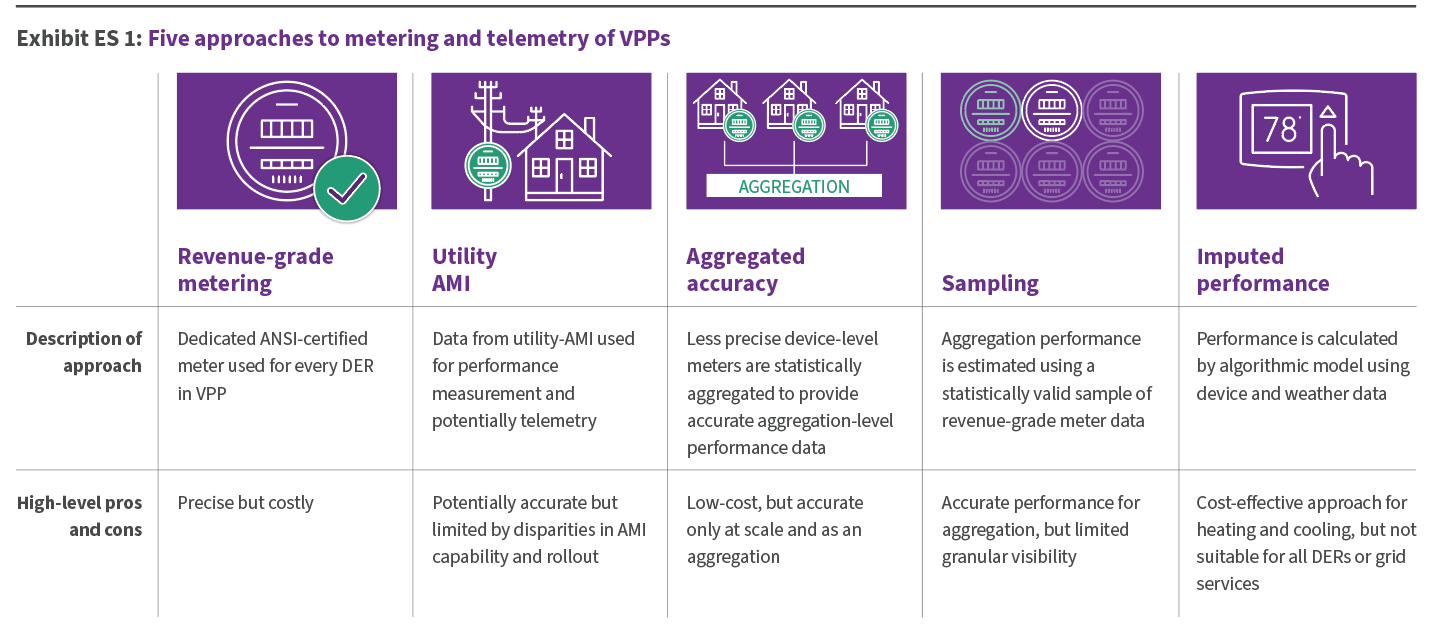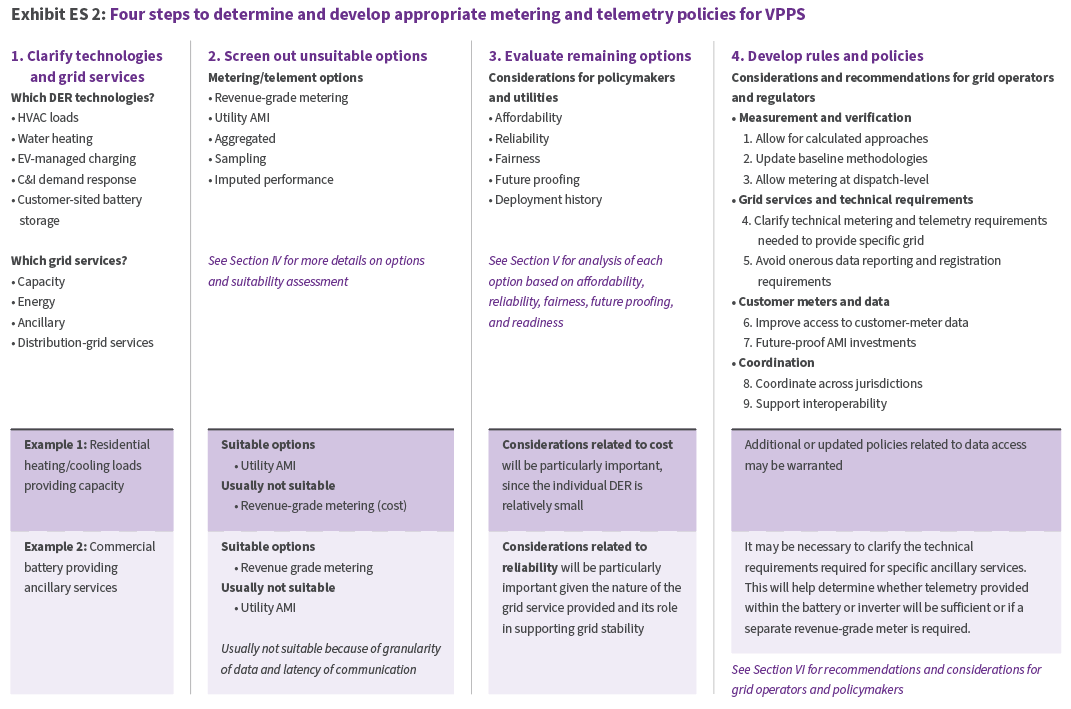
Virtual Power Plant Metering and Telemetry
Flexible Demand, Inflexible Requirements
Authors: Kevin Brehm, Athindra Venkatraman
Additional Contributors: Lauren Shwisberg, Alex Walmsley
Driven by consumer demand, distributed energy resources (DERs) are set to grow by over 170 GW in the next five years. Virtual power plants (VPPs) are low-cost, nimble, and rapidly deployable mechanisms to integrate DERs into the grid in an affordable and reliable manner to address rapid load growth.
However, a major barrier to scaling VPPs is metering and telemetry. The scaling of VPPs across the United States is stifled by onerous or inconsistent metering and telemetry requirements that vary across regions, stringent rules around the usage of pre-approved hardware, and limited data availability that constrains the scope of VPP participation.
This report is intended to educate and provide decision-making support for regulators, utilities, and other policymakers responsible for advancing VPP rules and policies by:
- Explaining the importance of the VPP metering and telemetry issue
- Exploring five metering and telemetry approaches, and how they compare based on deployment history, affordability, reliability, fairness, and future proofing
- Suggesting actionable recommendations and considerations for grid operators and regulators as they update metering and telemetry requirements for DERs and VPPs
Through detailed research into business practice manuals of grid operators, and interview insights from members of RMI’s Virtual Power Plant Partnership based on their experiences engaging in various US ISO markets, this report also provides a high-level synopsis of the current requirements for metering and telemetry, and the associated challenges to be addressed.

